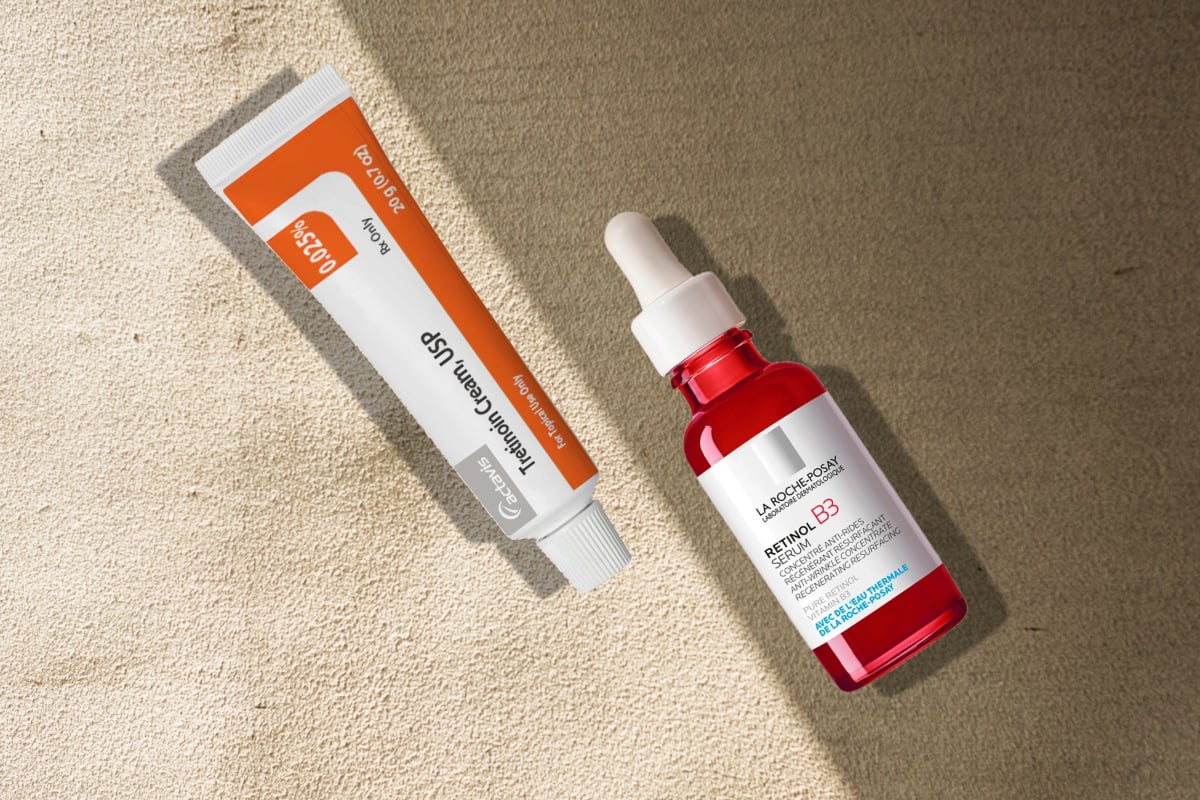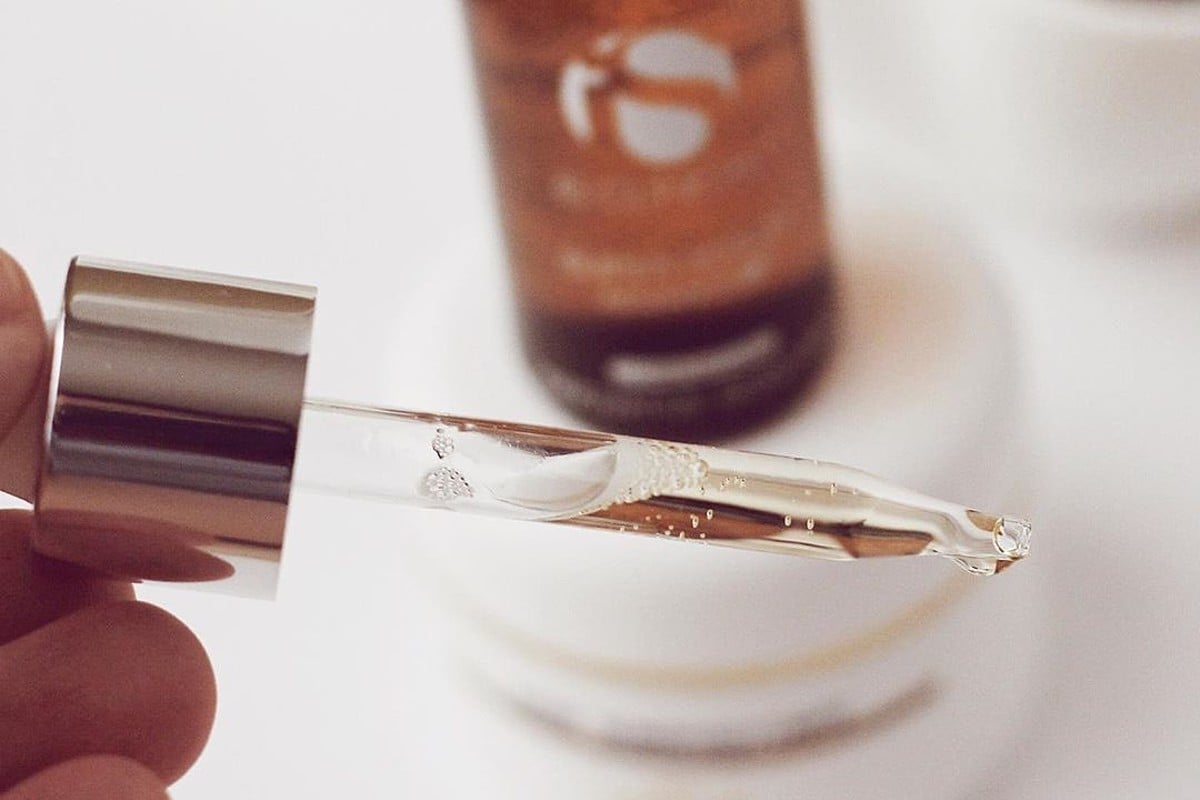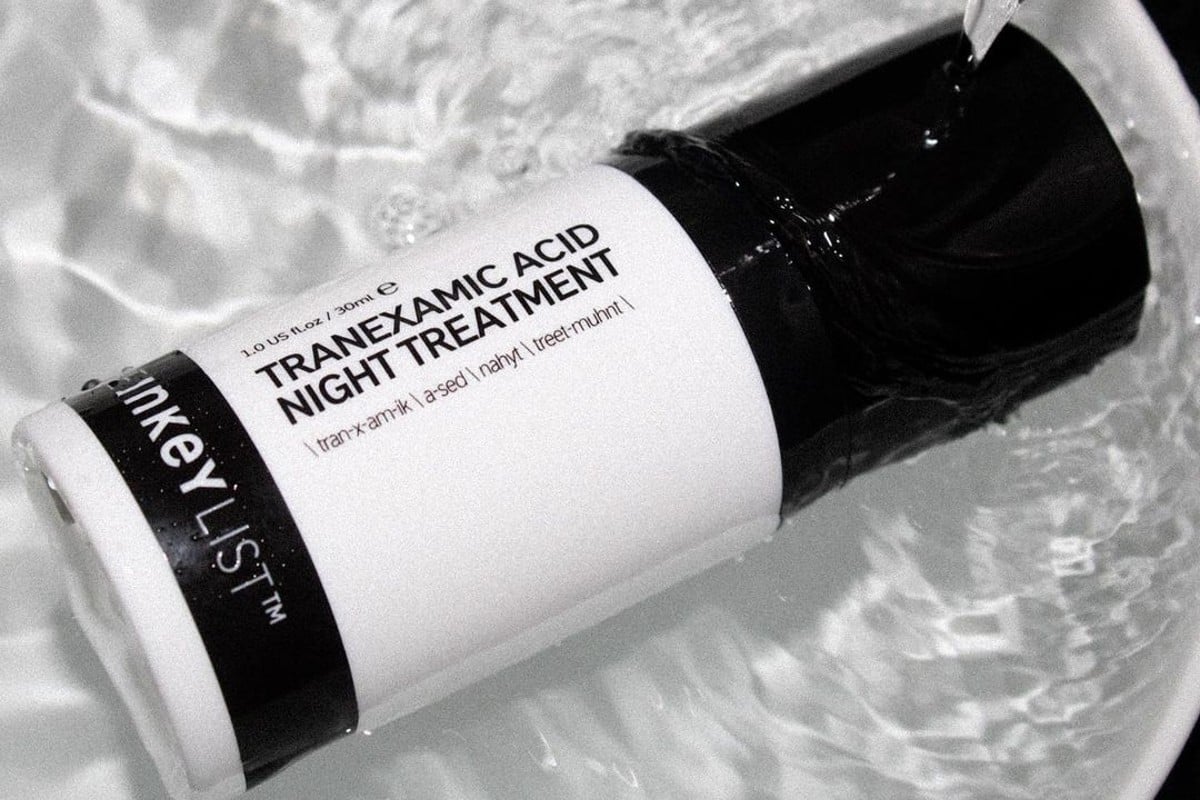Are you wondering if you can brighten your skin with tretinoin and achieve a perfectly even tone? Then you came to the right place. In today’s post, we’ll break down all tretinoin benefits for skin lightening that have actually been proved by science. Without further ado, here’s everything you need to know if you want to use tretinoin to lighten your skin.
What is tretinoin?
Tretinoin is a synthetic form of vitamin A and part of the retinoid family. It’s a prescription-strength treatment used as a topical cream or gel, usually to treat acne, wrinkles, and sun-damaged skin.[1] Tretinoin works by stimulating the cell turnover rate, meaning it helps remove old dead cells and encourages the formation of new ones. This is where all tretinoin benefits come from.
Does tretinoin lighten skin?
Yes, tretinoin can lighten skin by speeding up cell turnover, removing the pigmented cells that have been affected by sun exposure or excess melanin (skin-darkening pigment). By shedding old cells, tretinoin can reveal a thicker and brighter complexion as well as correct skin discolorations.
Yet, there’s something more you should know before using tretinoin for skin whitening. Depigmentation involves blocking or suppressing melanin production, the natural pigment responsible for darkening skin tone. Ingredients like hydroquinone, kojic acid, or niacinamide are considered potent skin whitening agents because they interfere with melanin production. However, tretinoin seems to have no effects on reducing melanin synthesis. Still, the role of tretinoin in skin lightening appears to be in other specific actions, such as increased cell turnover.
Tretinoin removes those cells with excess melanin, revealing a more even skin tone. Although tretinoin does not inhibit melanin production, it exfoliates the pigmented cells, which in turn reduces the total melanin level in the skin. In other words, tretinoin can improve skin discolorations such as melasma or hyperpigmentation (where the skin appears darker than it actually is), but it can’t lighten the natural skin color.[2]
For instance, one research published by The New England Journal of Medicine found that the melanin content in skin cells was decreased by up to 20% after following tretinoin treatment for 40 weeks.[3] According to their study, tretinoin could slightly lighten normal skin and effectively reduce hyperpigmentation.
How effective is tretinoin for skin lightening?
The takeaway? Tretinoin possesses pigment-lightening benefits. In fact, dermatologists often prescribe tretinoin for skin discolorations. The tretinoin’s ability to stimulate cell turnover also aids in evening out skin tone, improving texture, and may slightly lighten the skin. However, there’s one more reason to use tretinoin for skin lightening. Besides accelerating the cells’ growth cycle, tretinoin could also enhance the penetrations of other skin lightening agents. In turn, this supplements the pigment-lightening effects. For example, one study suggests that tretinoin intensifies the effect of azelaic acid and hydroquinone in the treatment of melasma.[4]
How to use tretinoin for skin lightening?
As tretinoin requires a medical prescription, your doctor can give you the best directions on how to use tretinoin for skin lightening. As an aside, most research on tretinoin’s depigmenting and lightning effects was performed using 0.05 or 0.1% topical cream.[3][5] As the treatment is irritating and drying, you should always use a hydrating and cell-regenerating moisturizer after your tretinoin cream.
The verdict
In addition to thickening the skin, tretinoin also helps even skin tone and improves skin discolorations. Because tretinoin does not inhibit melanin synthesis but facilitates pigment loss in skin cells, it effectively reduces hyperpigmentation or dark spots.
- Mukherjee S, Date A, Patravale V, Korting HC, Roeder A, Weindl G. Retinoids in the treatment of skin aging: an overview of clinical efficacy and safety. Clin Interv Aging. 2006;1(4):327-348. doi:10.2147/ciia.2006.1.4.327
- Yoshimura, Kotaro & Tsukamoto, Yukie & Harii, Kiyonori. (2001). Effects of all-trans retinoic acid on melanogenesis in pigmented skin equivalents and monolayer culture of melanocytes. Journal of dermatological science. 27 Suppl 1. S68-75. 10.1016/S0923-1811(01)00116-5.
- Topical Tretinoin (Retinoic Acid) Therapy for Hyperpigmented Lesions Caused by Inflammation of the Skin in Black Patients
- Breathnach AS. Melanin hyperpigmentation of skin: melasma, topical treatment with azelaic acid, and other therapies. Cutis. 1996 Jan;57(1 Suppl):36-45. PMID: 8654129.
- Kanthraj GR. Skin-lightening agents: New chemical and plant extracts -ongoing search for the holy grail!. Indian J Dermatol Venereol Leprol 2010;76:3-6






